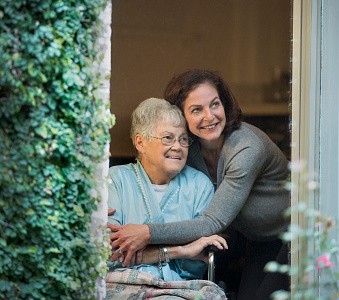One thing I am noticing is that our bodies become frail as we get older. I mean, that is a given… but you don’t see it until you actually see your parents go through it, and how much you took care of yourself shows as you get older … (this may be partially true).
I’m currently at the point where my parents are going to the doctors more often. They are getting small but significant procedures done and its interesting because they are doing it back to back…meaning, one week my mom, the other week my dad. (Ahhhh :-)!) And I WANT to be there for them, even if by their side in the hospital. Luckily, I have an awesome schedule and my parents schedule their appointments to be the first appointment of the day and I can see clients in the evening, but living a caretaking life is no joke.
I can only imagine what it must be like to be in the shoes of others that cannot accompany their parents to see the doctors. Now that I’m older, I ask… do a lot of parents even get their check ups done?
Luckily to my advantage, our family knows that doctors can actually help. Growing up as a hospital kid, they learned to advocate for me. I guess those tables are turning and its time to advocate/support them. So…Here are…
Ten ways to advocate for your Parents
1. Listen to your parents and to the doctors. They are defining the issues.
A lot of people go to the doctors and don’t use the knowledge the doctors give you – parents tend to do things their way and sometimes forget what the doctor says.
2. Learn to ask for second opinions. Gather information. Sometimes this helps, not only can one doctor miss something, but you gain assurance that its not just your doctor telling you something, its now two or three.
3. Know your rights!
If your parents do not speak English (in the USA), ask for a Translator. Though you may be able to translate, don’t place the burden of having to tell you parents’ things and later feeling emotions due to it. Let a professional do it, its their job, not yours. Also, there may be some medical terminology that sometimes-even professionals can’t comprehend because getting certain news about your parents can be shocking.
4. Have them Ask, Answer and make their own Decisions: Read about the conditions that they have, knowledge is power. They will want to ask you questions. Guide them to ask their doctors…gently/ sometimes sternly depending on how stubborn your parent(s) is/are…lol
Example: “mom/da/grandma, I read that this is what it is (hand them a brochure in their language), but I think you should defiantly ask the doctor as they know a lot more about this subject.”
The reason for this is to empower your parent and help them become advocated for themselves, if not already. This allows them to make an informed decision as oppose to a generalized statement “OK.”
5. Paperwork: Help keep and teach your parent how to keep their paperwork in one binder, so that if they every need anything, its all there. Doctor appointments, past and current medications. Have tabs, Label them, Past and Present. This way if their doctors (new doctors) ask about their history and your parents don’t remember, they have a binder. Also, you can always ask your treating team for a summary of services (HIPPA).
6. Help your parents set a plan for their health. Ask questions. Its better to ask than to assume. When can they fit in exercise? What can they do or not do (mobility wise). When is their next doctor appointment? What are their general health goals?
If they have a chronic illness, how will the team of doctors treat them? These questions you can ask your parents to ask their doctors. And explain to them that its always good to know what they should expect from the doctors, even though most doctors might say, we will take it one step at a time.
This helps…
7. Be patient, assertive but not aggressive.
Because these are your parents, you will want to get mad at the person who is treating them… this will not help the situation, it will only create more anxiety. And the whole point of you being there is to support.
A lot of the time, you will see yourself in their reactions, which is normal because…well…. They raised you and you learned things from them. So try to be patient with them and yourself.
8. Review with your parent. I will warn you, a lot of people who have acute or chronic illness with do one of two things; talk about it like there is no tomorrow, or not talk about it like there is no tomorrow…. Be patient. Be kind and remind yourself that you are there to support not live their life. This is also where things can get dicey. Because your parent may already know and may not want to review, your binder may help. Casually leaving the binder out might help them review their condition, but regardless, always refer them to talk to their doctors. Have a talk about it.
9. Remind them of their follow up appointments.
10. Be you. Its good to know yourself, and your positive attributes. Sometimes it’s also good to know if you are not fit to be your parent’s supporter and you need to step away.
Most of the time it’s hard to see our Heroes being frail. If for some reason your parent(s) ask you to be there for them and you don’t feel ready, have a conversation about it. Tell them why you don’t feel capable to help them. Explain it to them. Because with out an explanation, it usually just feels like a rejection or like you don’t want to be there for them.
11. TAKE CARE OF YOURSELF TOO!
I know I only said ten, but I added one because its needed.
Well… I wish you luck. And ALWAYS< ALWAYS>ALWAYS contact a doctor for support. Even if you yourself are a doctor. J
Smile (if you want),
Jes Sofia Valle, Founder, MA IMFT

















